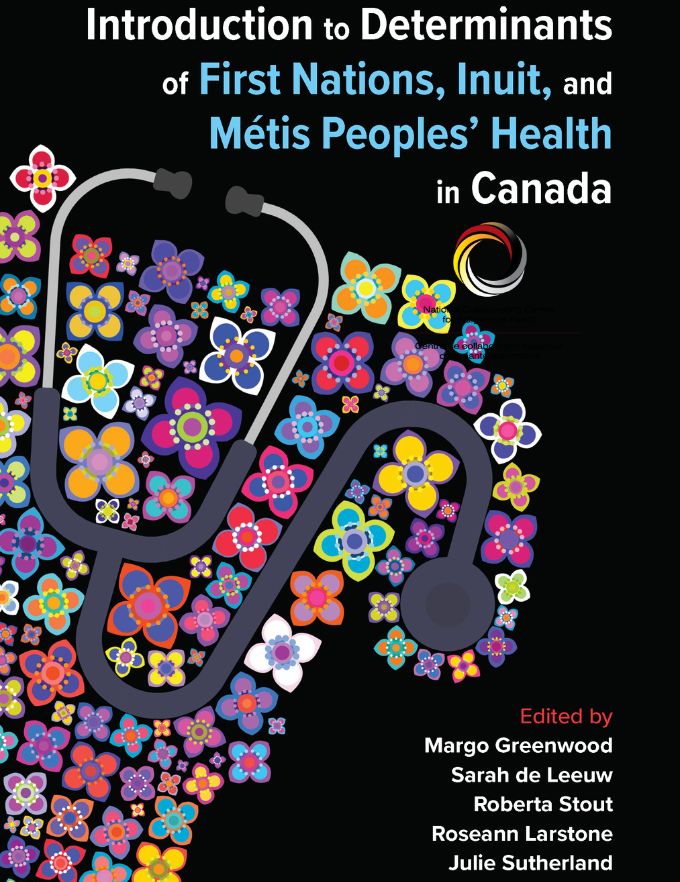
November 2022
Introduction to Determinants of First Nations, Inuit, and Métis Peoples’ Health in Canada (Canadian Scholars’ Press, 2022) is a new undergraduate-level textbook offering a refreshing strengths-based approach that centres Indigenous voices and experiences for effective decolonization in health care.
Compiled by experienced editors associated with the National Collaborating Centre for Indigenous Health (NCCIH), Introduction to Determinants of First Nations, Inuit, and Métis Peoples’ Health in Canada draws together the work and writings of primarily Indigenous authors, including academics, community leaders, and health care practitioners. This accessible and timely introduction is a vital undergraduate resource, and invaluable for introducing key concepts and ideas to students new to the field.
This textbook pushes far beyond the current limitations of narratives around Indigenous health and colonization. It also provides an engaging curriculum for an entire term between two covers. Each chapter offers learning objectives and critical thinking questions and activities. It’s designed to be accessible and practical. - Dr. Sarah de Leeuw, editor
Editor Margo Greenwood says, “This book draws on community wisdom, contributions and intervention. It’s meaningful and relevant to a variety of audiences in health care, universities and communities. Indigenous people, non-academics and community members, will see themselves reflected here.”
The NCCIH has produced an accompanying series of eight videos featuring discussions with some of the editors and authors of Introduction to Determinants of First Nations, Inuit, and Métis Peoples’ Health in Canada. The videos offer insights on key concepts in the book, and can be used as stand-alone learning tools. Topics related to specific chapters include forced sterilization, the power of storytelling, Inuktut as a public health issue, creating safer faculties of medicine for Indigenous peoples, Indigenous food sovereignty, and returning birthing practices to Indigenous communities.

Related Links
Related NCCIH Resources